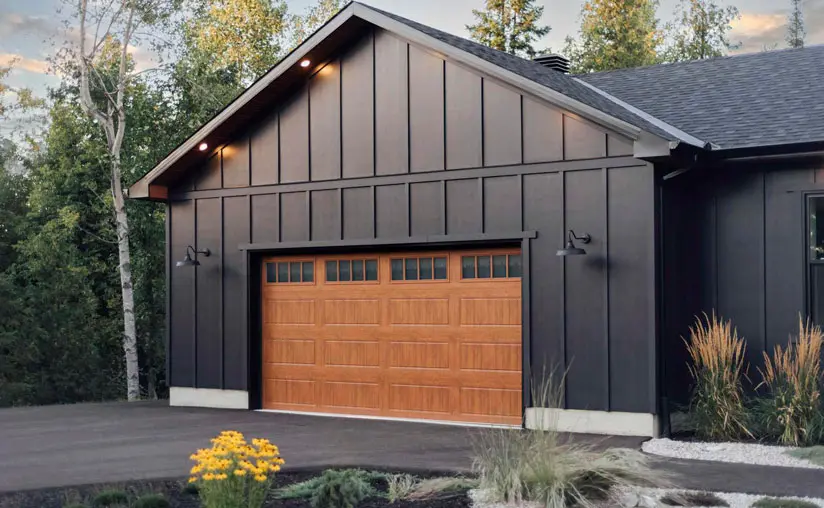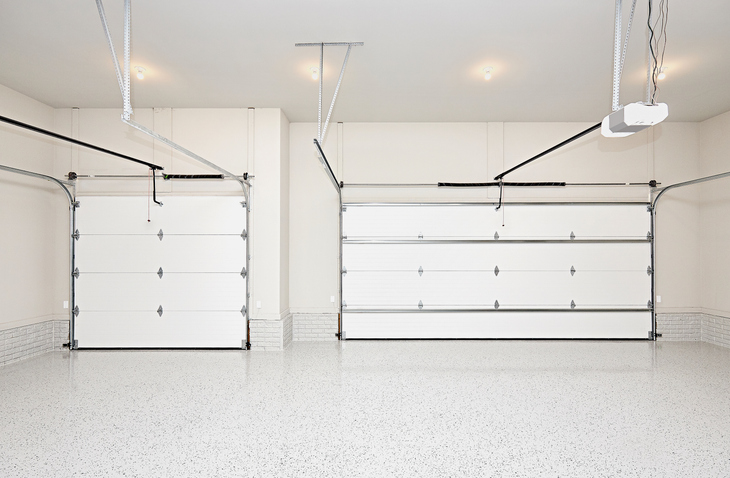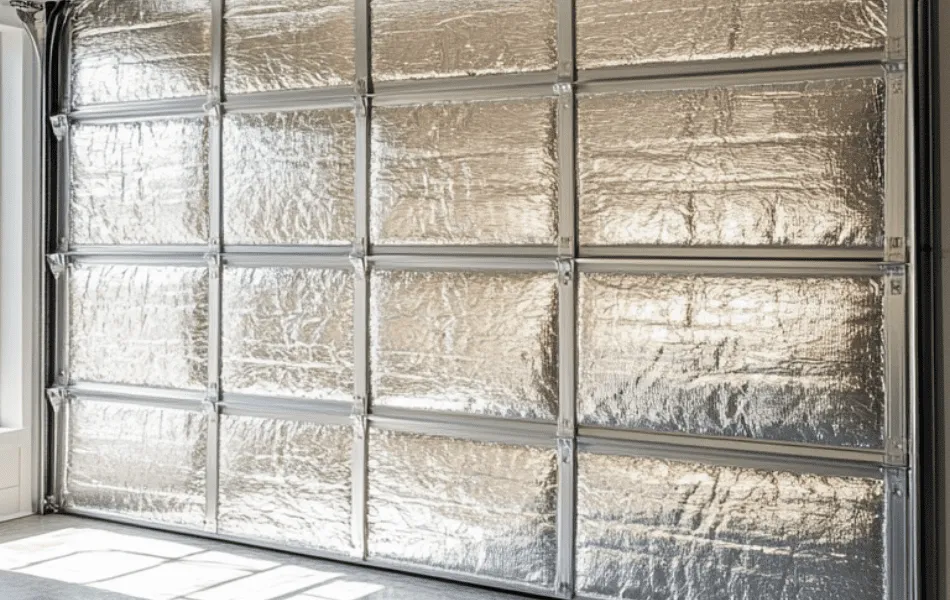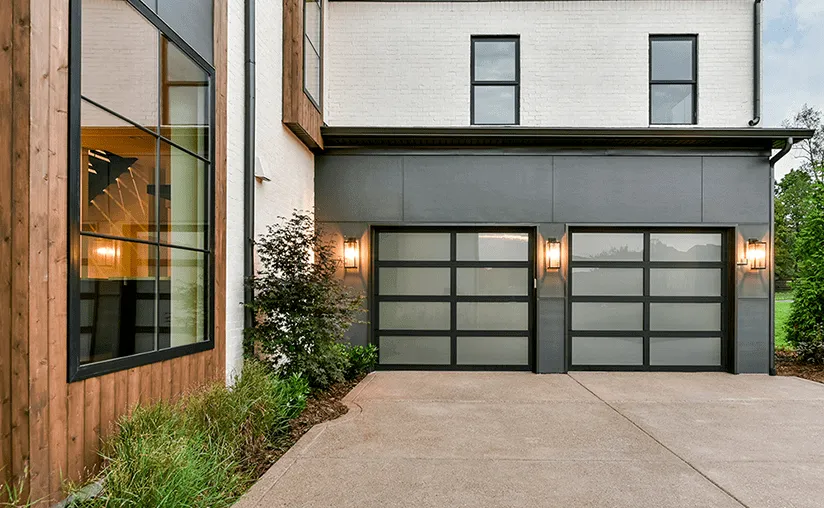Homeowners often face the challenge of garage door noise disrupting the peace in their homes. This residential garage door noise level guide aims to provide valuable insights into understanding and mitigating these sounds. Whether you’re dealing with creaks, squeaks, or loud bangs, addressing these issues can lead to a more serene home environment.

Understanding Garage Door Noise
Before diving into solutions, it’s important to understand the sources of garage door noise. Typically, these sounds arise from the door’s moving parts, such as the rollers, springs, and hinges. Recognizing the specific noise can help in diagnosing the problem effectively.
Common Sources of Noise
Several components can contribute to the noise levels of your garage door:
- Rollers: Worn out or metal rollers can produce loud rolling sounds.
- Springs: Tension springs can cause loud bangs if they are not functioning properly.
- Hinges: Loose hinges can result in creaking noises.
Effects of Garage Door Noise on Homeowners
The impact of garage door noise extends beyond mere annoyance. It can affect sleep, concentration, and overall mood. By addressing these issues, homeowners can enjoy a more harmonious living space.
Why Noise Matters
Garage door noise can be a significant disturbance, especially in homes where the garage is attached directly to living spaces. For some, the noise may even lead to stress or irritation, making it crucial to find effective solutions.
Solutions for Reducing Garage Door Noise
There are numerous strategies to reduce garage door noise. From regular maintenance to advanced upgrades, homeowners have a variety of options to explore.
Regular Maintenance
One of the simplest ways to keep noise levels down is to perform regular maintenance. This includes lubricating moving parts, tightening loose bolts, and inspecting the rollers and springs for wear and tear.
Upgrade to Quieter Components
Consider upgrading to quieter components, such as nylon rollers, which are significantly quieter than metal ones. Additionally, installing a belt-driven garage door opener can drastically reduce operational noise compared to chain-driven models.
The Role of Insulation in Noise Reduction
Insulation plays a key role in dampening the sound produced by garage doors. By adding insulation, you can not only reduce noise levels but also improve energy efficiency.
Benefits of Insulated Garage Doors
Insulated garage doors offer several advantages, including reduced noise, better temperature control, and increased durability. They can significantly enhance the comfort and functionality of your garage space.
Professional Help for Noise Reduction
If DIY solutions do not suffice, seeking professional help can be beneficial. Professional technicians can identify specific issues and provide tailored solutions to reduce garage door noise.
When to Call a Professional
If you’ve tried basic maintenance and the noise persists, it may be time to call in a professional. Issues like misaligned tracks or broken springs require expert attention to ensure safety and efficiency.
For more detailed guidance, you can visit Home Depot’s garage door maintenance tips.
DIY Tips for Homeowners
For those who prefer a hands-on approach, here are some DIY tips to minimize garage door noise:
- Regularly lubricate all moving parts.
- Check and tighten all loose bolts and hardware.
- Replace metal rollers with nylon ones for quieter operation.
Choosing the Right Garage Door for Sound Control
When selecting a new garage door, consider models specifically designed for sound control. These doors often feature materials and designs that minimize noise production.
Key Features to Look For
Look for doors with insulation, heavy-duty tracks, and quiet operation mechanisms. These features not only reduce noise but also enhance the overall performance of the door.
Impact of Garage Door Design on Noise
The design and build of a garage door can influence its noise level. Choosing a well-designed door can reduce noise and improve aesthetics at the same time.
Design Considerations
Consider the door’s material, insulation properties, and the quality of its components. These factors can significantly impact the noise level and durability of the door.
Modern Technologies in Reducing Noise
Modern technology offers innovative solutions for reducing garage door noise. From smart openers to advanced materials, these technologies can enhance the functionality and quietness of your garage door.
Smart Garage Door Openers
Smart openers offer features like soft start and stop, which can reduce noise during operation. They also provide convenience with remote access and monitoring capabilities.
Long-term Benefits of Noise Reduction
Reducing garage door noise not only improves quality of life but also adds value to your home. A quieter garage door is an attractive feature for potential buyers and can enhance curb appeal.
Value Addition
By investing in noise reduction strategies, homeowners can enjoy a quieter living environment and potentially increase their property’s market value.
Environmental Impact of Quiet Garage Doors
In addition to personal benefits, reducing garage door noise can have positive environmental impacts. Quieter doors often consume less energy and contribute to a more sustainable home.
Eco-friendly Options
Look for eco-friendly garage door options that offer both noise reduction and energy efficiency. These choices can help lower your carbon footprint while enhancing home comfort.
Conclusion
Addressing garage door noise is essential for creating a peaceful home environment. By understanding the causes and implementing effective solutions, homeowners can enjoy the benefits of a quieter, more efficient garage door.
For more information on matching your garage door to your home exterior, check out this guide.

FAQs
How can I reduce garage door noise?
Regular maintenance, upgrading to nylon rollers, and adding insulation can effectively reduce garage door noise.
What causes garage door noise?
Common causes include worn-out rollers, loose hardware, and lack of lubrication.
Do insulated garage doors reduce noise?
Yes, insulated garage doors can significantly diminish noise levels and improve energy efficiency.
This article contains affiliate links. We may earn a commission at no extra cost to you.










